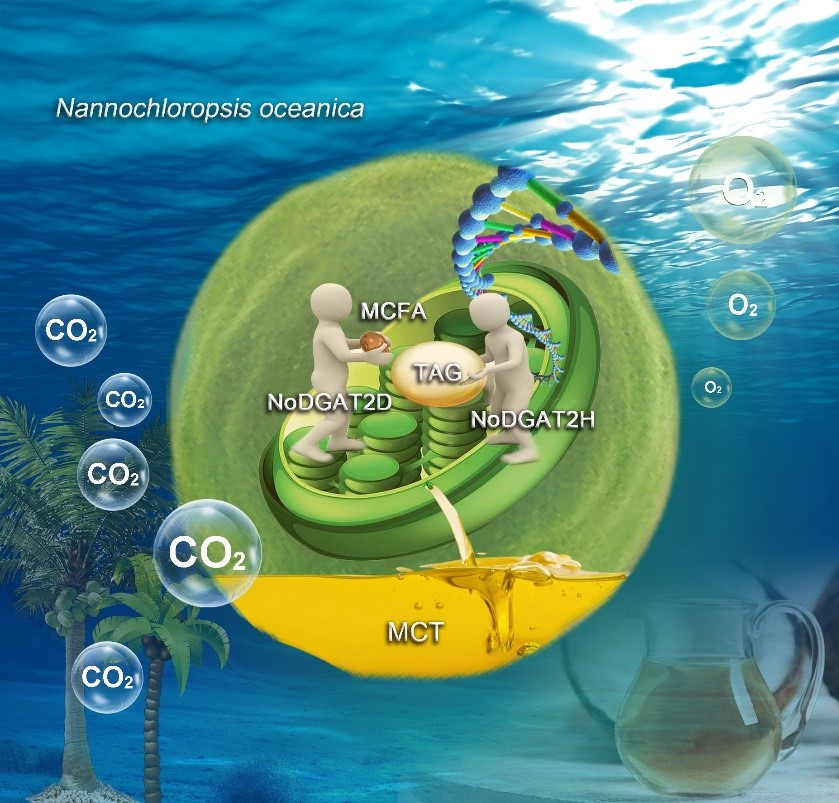Engineering Industrial Microalgae for Producing Healthy Biological Oil
This study was published in Plant Physiology on August 30.
Called triacylglycerols, these biological oils are the main form of energy storage in cells and found in all vegetable oils and animal fats — but they are not made equal.
Each triacylglycerol molecule consists of three fatty acid moieties that are anchored to a glycerol scaffold. Depending on the chain-length of the fatty acids, each molecule can be classified as long-chain triacylglycerol or a medium-chain triacylglycerol (MCT), which are distinct in application area, economical value and market potential.
"During digestion, MCTs are converted to medium-chain fatty acids, which bypass fat tissue, lowering the chance of it converting into fat tissue," said XU Jian, a professor at Single-Cell Center of QIBEBT. "It also increases energy expenditure, fat oxidation and satiety and lowers energy and food intake in both lean and obese individuals."
The issue is availability. MCT oil can only be manufactured by processing oils from palm and coconut plants, both of which are limited to growth in tropical and subtropical regions.
"Moreover, only about 3% of the whole plant mass is stored in the form of oil, so we need a more efficient and versatile feedstock," said XIN Yi, an associate professor at Single-Cell Center, explaining that the limited availability of MCT has hindered exploration of the product on a large scale.
The marine microalgae Nannochloropsis oceanica has drawn significant attention in the research community with its high photosynthetic growth potential and rich oil content, but has generally been found to only contain 0.01% to 0.05% of MCT. Despite this low content, a genetic analysis previously revealed evidence of a native MCT-assembling mechanism in this microalga.
In this study, the researchers discovered in the microalga two specific enzymes that are dedicated to assembling medium-chain fatty acids. These two very talented enzymes, when stacked with additional enzymes that feed substrates to the specialized MCT-assembly mechanism, can elevate MCT productivity by 64.8-fold at the peak phase of oil production.
Such functional specialization of these proteins in chain-length determination of products reveals a previously unknown dimension of control in cellular triacylglycerol, which can be exploited for producing designer oils in microalgae.
The researchers plan to further enhance MCT production by genetically manipulating the molecules to halt degradation, control how long fatty acids can be and to increase the total triacylglycerol content.
"Such efforts should further enhance cellular MCT production and accelerate the pace of engineering industrial microalgae into efficient and sustainable feedstock for designer oils," said HU Chunxiu, an associate professor at the Dalian Institute of Chemical Physics (DICP) of CAS .

(Text by XIN Yi)
Contact:
CHENG Jing
Qingdao Institute of Bioenergy and Bioprocess Technology, Chinese Academy of Sciences
Tel: 86-532-80662647/80662622
E-mail: chengjing@qibebt.ac.cn